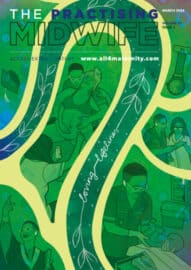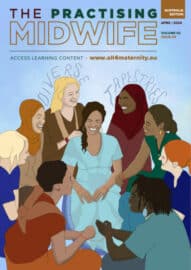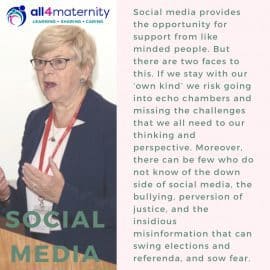Making a stand for women and midwifery
Lesley Page CBE
Introduction
What do I mean by ‘make a stand’ ? What helps us make a stand when the going is tough?
I have worked in the development of midwifery for over 40 years. I helped establish regulated midwifery in the health services in Canada. I have always sought to ensure that women have the care of knowledgeable skilled and compassionate midwives. You would think that such work would always be supported. But of course, it isn’t.
Such change is always political, and prone to negative reactions that the strengthening of women’s place in society often engenders. On the whole I have found my work challenging and rewarding, but there have been times that resistance has been so vicious, so personal that I wanted to give up.
I thought it might be of help to so many of you working to give women and their families the best start, developing and scaling up evidence based and human rights-based services, if I were to share what has helped me.
Fairness and Justice
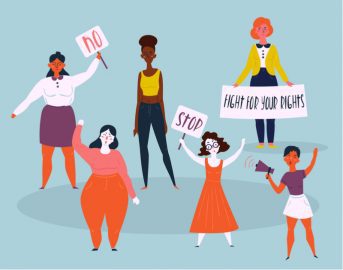
So, when the women I was caring for in the midwifery project in Canada asked why they could not eat and drink in labour, I sought out the evidence, and once I found it, I challenged the rule of nil by mouth in labour. When we established the first midwifery project to be established in a health service in Canada we kept a record of outcomes and had a psychologist interview woman about their experiences. When the inevitable resistance to our success came we were able to demonstrate the benefit of midwifery care.
When we established an early continuity of care practice in the UK we were able to challenge the rumours and innuendo, often it seemed intentionally seeded, through the outcomes from our thorough evaluation. I could go on.
Women’s experience gives us determination
Sometimes the resistance was so persistent, so thoughtless, so hostile, I felt I could not do it any more. Then, something would usually happen to help me see how worthwhile the effort was. I remember vividly when we were resisting attack over the establishment of continuity of care, meeting a woman who was cared for by her known midwife for her labour and birth. She told me in simple words what it had meant to her. After that I simply couldn’t give up.
‘Could I sleep at night test?’
In managing services I have often had to make the case for more midwives, or to prevent the reduction of midwifery numbers. This is never easy, it can be much easier just to capitulate. In psyching myself up for making a stand I have the ‘could I sleep at night test’.
It is simply this, if I let this happen, or if I don’t support this, will I be able to sleep at night? I would recommend this test because sometimes we need to make a stand, but sometimes we need to step back and let it go. It is just not feasible to live life perpetually on a soap box. Or, and I hate to use a military analogy, sometimes if you win a battle you lose the war. Prizes for anyone who can think of a better non-military analogy.
A support network
Of course, we gain resilience by the support we get from others. I remember clearly all the colleagues, midwives, doctors support workers students and users of services, who have worked together with me. We are never alone, although sometimes it may feel like it. Taking others with us, seeking genuine support is a must of leadership.
Social media provides the opportunity for support from like minded people. But there are two faces to this. If we stay with our ‘own kind’ we risk going into echo chambers and missing the challenges that we all need to our thinking and perspective. Moreover, there can be few who do not know of the down side of social media, the bullying, perversion of justice, and the insidious misinformation that can swing elections and referenda, and sow fear.
I must admit I am perplexed about how we manage the current polarisation and vicious attacks we are seeing through media and social media regarding care around birth. Like any of us who are working to develop midwifery I have experienced trolling, hostile tweets and misrepresentation that seems to go with the territory.
It helped once I managed to see that this wasn’t personal, but I still sometimes get a sinking stomach. It has been sobering and distressing to see colleagues subject to journalistic inquisitions around their support of high quality care, and being viciously attacked, by the media.
The received wisdom is not to respond to hostile media and trolling and bullying on social media. Recently though, seeing information in tweets that was clearly untrue, I sometimes respond. If tweeters are really lobbying for good care it seems to me they should learn to read and critique evidence and understand methodology.
Through work in the humanization of childbirth I have seen that respectful communications are basic to all we do. Seeking a way of challenging while being respectful through all our communications including social media is important. But we cannot be naive. Some see the world through a completely different lens, some want to stir the pot, and some simply seek to hurt and harm. Some are protecting their vested interests. Some are hurting and traumatized from terrible experiences. We need to be realistic, social media can do harm.
But perhaps the most important test for us in the use of social media is one of proportionality. Sometimes when I am tempted to enter the fray of a twitter tussle, I need to remind my self of all the good people out there simply getting on with making the world a better place to be born into, and to give every woman and her baby the best birth possible. Now-shall I get into that debate on water birth heating up at the moment? No, I think instead I will write for you, and finish the speech I am preparing on the importance of degree level education for midwives, and then talk to my son when he comes home….

